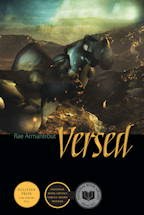Ok -- a Poem
Ok – a Poem By Mahbubul Karim (Sohel) December 15, 2010 Ok, so one life to live, huh? Walk on the moon? Or swim near the Barrier Reef? Nada Ok, so haven’t been on the moon Nor swooned under the sea Snorkeling amid sharks Impossible? Blah! Blah! Blah! Breathing the air Deep and long Swallowing water Like pure mist Seen the ocean’s heist of the sun Setting like large blood droplet While the new moon Stuck on the sky Like a curvy knife That farmer thrashes life Of Weeds and brambles with But who says This moment, this frenzy Of pressurized heart, aching Muscles and tattering bones Even in screeching pain Jumping off the calcified mirror And saying hello in tingling tone One life to live, huh? Ha! Ha! Ha!
